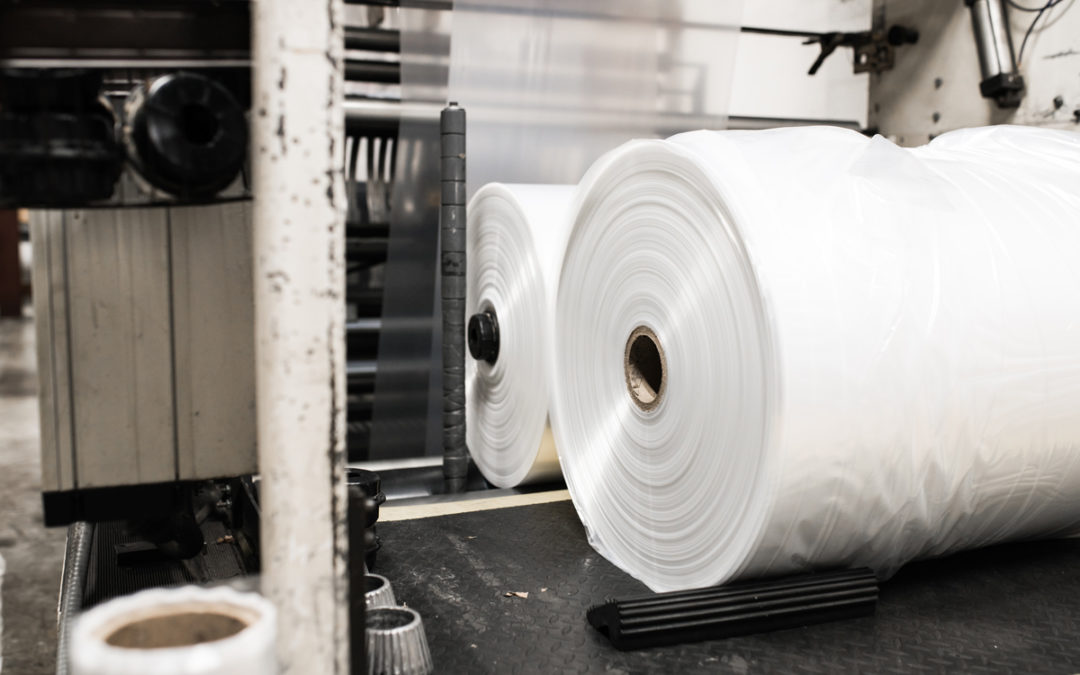Partnering with a supplier is a substantial business commitment. As such, it’s important to review suppliers’ certifications when evaluating options. Among other things, certifications demonstrate a manufacturer’s commitment to quality, safety, and legal compliance.
On that note, if your business relies on (or is in need of) a poly bag supplier, you may be wondering which certifications apply to the plastic bag manufacturing process. To shed some light on the subject, in this article we’ll explain the three types of certifications that we hold here at A-Pac Manufacturing, and why those certifications are important to you.
Government Approval: FDA & USDA
To protect consumers and verify products are safe to use, the Food & Drug Administration (FDA) and the United States Department of Agriculture (USDA) rigorously examine chemicals and materials to assess toxicity and other potential risk factors. In regard to plastic bag manufacturing, a common objective of the FDA review process is to determine if a plastic and its chemical ingredients are safe and suitable for food packaging. If so, it will qualify as “food-grade.”
The plastic is tested in a variety of conditions to ensure it’s not affected by temperature change, moisture, oil, other chemicals, etc. If the plastic and its ingredients/additives pass all tests and safety standards, it can then receive FDA approval. However, for plastic packaging to be deemed food-grade in its final form, it must still meet two other sets of certification requirements (which we’ll now discuss below).
Quality Management Certification: ISO 9001
Founded in 1947 and active in 165 countries, the International Organization for Standardization (ISO) is a well-known and respected global standard-setting body. One of the most popular ISO standards is the ISO 9000 family, which pertains to quality management.
The ISO 9001 certification (part of the ISO 9000 family) establishes a quality management model to help businesses achieve — and consistently maintain — a high degree of quality in their products and services. The ISO 9001 quality management model is very applicable to the plastic bag manufacturing process. However, it can be implemented by virtually any organization dedicated to pursuing superior quality standards — regardless of size or industry.
To earn an ISO 9001 certificate, an organization will be evaluated across the following seven quality management categories:
- Customer focus
- Leadership
- Engagement of people
- Process approach
- Continuous improvement
- Evidence-based decision making
- Mutually beneficial supplier relationships
Why is ISO 9001 Relevant to Plastic Bag Manufacturing?
In the context of plastic bag manufacturing, recall from above that a common objective is to obtain a food-grade status. To qualify as food-grade, plastic must not only be made from approved materials and ingredients — it must also be manufactured in a safe, clean facility…and that’s where the ISO quality management standards come into play. Most food-grade plastic manufacturers must comply with ISO 9000 as the minimum operating standard.
Food Safety Certification: FSSC 22000
In addition to FDA/USDA approval and the ISO 9001, there’s a third certification that further confirms the safety of food-grade plastic: the Food Safety System Certification (FSSC 22000).
Developed by the Global Food Safety Initiative — an independent standard-setting organization for food safety — the FSSC 22000 provides a comprehensive set of stringent food safety standards to guide the entire food product lifecycle, from production to purchase. As such, it extends far beyond plastic bag manufacturing to include any company in the food supply chain (farming/agriculture, meat products, animal feed, food ingredients, food packaging, etc.).
Since we’ve already touched on the ISO 9001, it’s worth noting that the FSSC 22000 certification is not entirely separate from ISO standards. Rather, the FSSC 22000 is simply an expansion of ISO’s food safety management system: the ISO 22000 (which works together with ISO 9001 quality management standards). When paired together, the ISO 9001 and FSSC 22000 form a powerful combination to establish superior levels of safety and quality.
The Benefits of Quality and Safety Certifications for the Manufacture of Plastic Bags
When companies are held to high standards, everyone wins. Certifications like the ISO 9001 and FSSC 22000 lead companies to produce better, safer products — ultimately protecting consumers and fostering trust within business-to-business relationships. Furthermore, maintaining such certifications helps companies stay compliant with legislation and grants them access to a wider international market.
At A-Pac Manufacturing, we’re proud to hold FDA/USDA, ISO, and FSSC certifications. These certificates are a reflection of our dedication to providing safe, dependable, high-quality products to our customers. If you’re interested in ordering poly bags, plastic liners, or plastic film and tubing, we’re happy to help you find an ideal solution. Give us a call or contact us online today.

